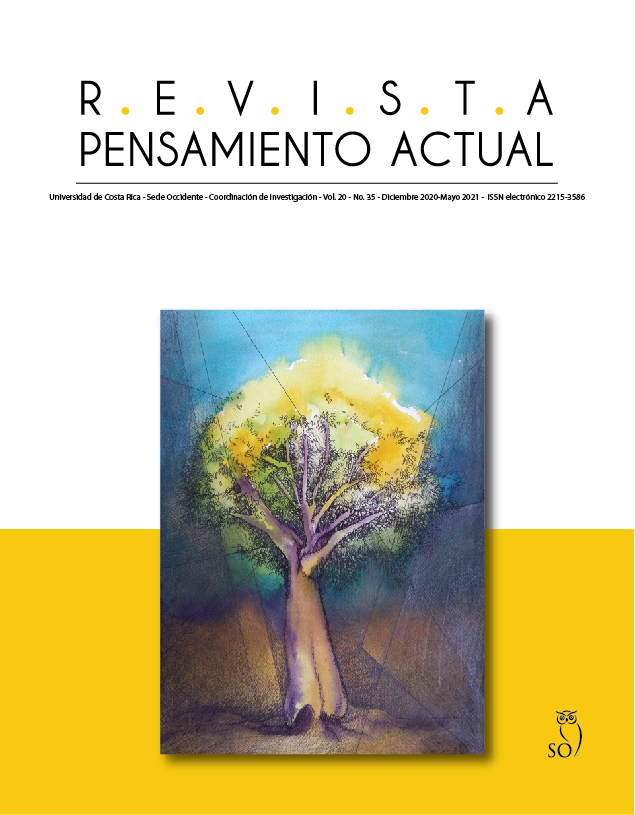Abstract
To increase the innovation during the teaching process, Flipped Classroom strategy was used, for the first time, in two Marketing courses at the Hispanoamerican University of Costa Rica. The main goal of the study was to analyze the students perceptions about this strategy in the third Marketing Seminar. The research considered four main aspects: the teachers role, the quality of the new knowledge, the freedom of expression during class, and the level of students; enjoyment. The perceptions also taken into consideration for the analysis. This study was quantitative and non-experimental. A questionnaire was used as the main instrument for gathering data. The overall perception of the strategy was positive: it was considered that it increased the learning process, aided concept memorization and understanding, and increased the
enjoyment during class. linked to the evaluation process were.
References
Albalawi, A., (2018). The effect of using Flipped Classroom in teaching Calculus on students’ achievement at the University of Tabuk. International Journal of Research in Education and Science, 4(1), 198-207. doi: 10.21890/ijres.383137
Domínguez T., Sanabria Q., and Sierra B., (2018). ¿Cómo perciben los estudiantes el clima de aprendizaje en el Aula Invertida en cirugía? Lecciones aprendidas y recomendaciones para su implementación. Revista Chilena de Cirugía, 70(2), 140-146. doi: org/10.4067/s0718-40262018000200140.
Gaspar, B., Reyes, M., González, F. & García, F. (2016) La gamificación y el Aula Invertida, aplicada en las universidades tecnológicas. Revista de Docencia e Investigación Educativa, 2(4), 30-33.
Hernández, R., Fernández, C. & Baptista, P. (2014). Metodología de la Investigación. Ciudad de México: McGraw-Hill.
Hernández-Silva, C. & Flores, S. T. (2017). Aula Invertida mediada por el uso de plataformas virtuales: un estudio de caso en la formación de profesores de física. Estudios Pedagógicos (Valdivia), 43(3),
Jakobsen, K. V. & Knetemann, M. (2017). Putting structure to Flipped Classroom using team-based learning. International Journal of Teaching and Learning in Higher Education, 29(1), 177-185.
Kerin, H. (2014). Marketing (11ª Ed.). Ciudad de México: McGraw-Hill.
Lambin, J. (2009). Dirección de marketing (2ª Ed.). Ciudad de México: McGraw-Hill.
Lizcano-Dallos, A., Barboza-Chacón, J. & Villa Mizar-Escobar, J.D. (2019). Aprendizaje colaborativo con apoyo en TIC: concepto, metodología y recursos. Magis: Revista Internacional de Investigación en Educación, 11(24), 5–24. https://doi.org/10.11144/Javeriana.m12-24.acat
Lovelock, W. (2015). Marketing de servicio (7ª Ed.). Ciudad de México: Pearson. Luque, F. J. (2016). Las TIC en educación: caminando hacia las TAC. Cuadernos de desarrollo aplicados a las TIC, 5(4), 55-62.
http://dx.doi.org/10.17993/3ctic.2016.54.55-62/
Melendo, L. & Presol, A. (2018). La metodología Flipped Classroom en educación superior. Resultados de uso de LYNDA como recurso para las pre-clases. Revista de Comunicación de la SEECI, 46, 77-92.
http://dx.doi.org/10.15198/seeci.2018.46.77-92 Motameni, R. (2018). The combined impact of the Flipped Classroom and Collaborative Learning on students’ learning of key marketing concepts. Journal of University Teaching & Learning Practice, 15(3), 1-21. https://ro.uow.edu.au/jutlp/vol15/iss3/4
Reyes-Parra, A., Cañón-Ayala, M. & Olarte-Dussan, F. (2018). Una propuesta de Aula Invertida en la asignatura de señales y sistemas de la Universidad Nacional de Colombia. Revista Educación en Ingeniería, 13(25), 82–87. https://doi.org/10.26507/rei.v13n25.877
Rivera, F. M. & García, A. (2018). Aula Invertida con tecnologías emergentes en ambientes virtuales en la Universidad Politécnica Salesiana del Ecuador. Revista Cubana de Educación Superior, 37(1), 108–123.
Rodríguez-Carmona, L. M. & Presol-Herrero, Á. (2018). Application of LYNDA as a Teaching Resource in the Project of Educational Innovation in the Excellence of Teaching. Revista de Comunicación de La SEECI, 22(46), 77–91. https://doi.org/10.15198/seeci.2018.46.77-92
Schmeisser, C. & Medina, J. (2017). Efecto del Aula Invertida como Estrategia Didáctica en el Rendimiento Académico. HETS Online Journal, 8, 66–90.
Scovotti, C. (2016). Experiences with Flipping the Marketing Capstone Course. Marketing Education Review, 26(1), 51–56.
Wen-Ling, S. & Chun-Yen, T. (2017). Students’ perception of a Flipped Classroom approach to facilitating online Project-based learning in marketing research courses. Australasian Journal of Educational Technology, 3(5).

